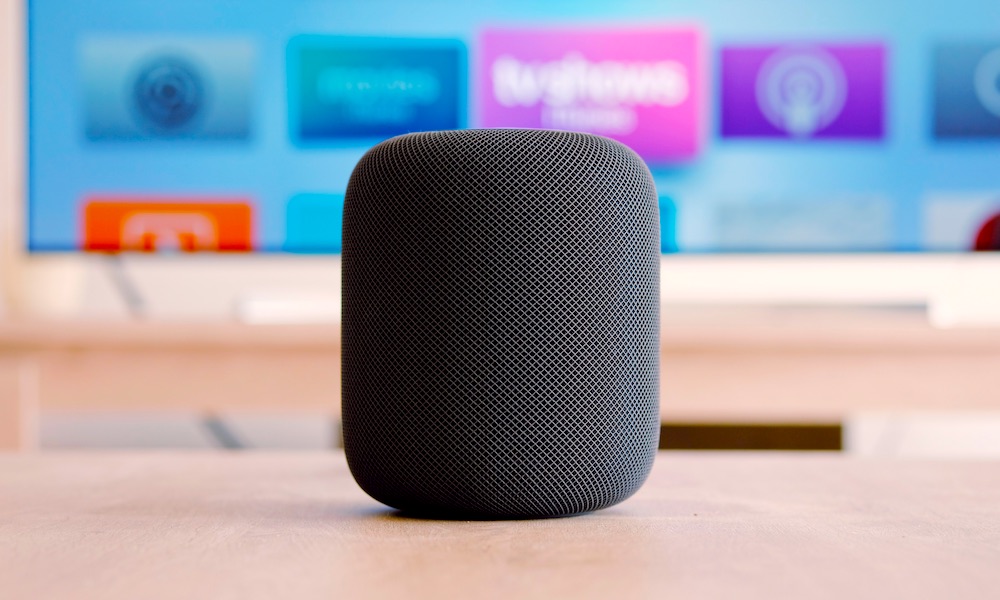Gone But Not Forgotten: Here’s What Apple Cancelling the HomePod Means for HomePod Owners
 Howard Bouchevereau / Unsplash
Howard Bouchevereau / Unsplash
Toggle Dark Mode
Apple’s recent decision to cancel the HomePod may have come as a shock to some, but as we noted earlier, the writing had really been on the wall for some time.
The price and profile of the smart speaker meant that it never attracted much more than a niche market of Apple fans, so there’s no doubt it didn’t sell particularly well. Still, it wouldn’t have been the first niche product Apple ever made, leading some to wonder why it was necessary to discontinue it entirely.
Since several reports suggested that Apple had been selling it at a loss, particularly after dropping the price two years ago, so it’s understandable why the company wouldn’t want to keep a product around that was actually costing it money to produce, especially after the torch was successfully passed to the smaller and more affordable HomePod mini last fall.
What About My HomePod?
Current HomePod owners don’t need to be alarmed by Apple’s decision to stop selling the full-sized HomePod, however, as there’s no indication that Apple is going to stop supporting it in any way.
Although you won’t be able to buy a new HomePod for much longer — Apple Stores and other retailers are clearing out the last of their stock — the company made it clear that it will continue to support every HomePod that it’s ever sold.
Apple will provide HomePod customers with software updates and service and support through Apple Care.
Apple’s statement to TechCrunch
In practical terms, this means that if you bought a HomePod in the last year, it will still be serviced under warranty, and if you bought AppleCare+ for your HomePod, and it’s still in effect, you’re still entitled to repairs under the terms of the AppleCare+ plan, including coverage for accidental damage.
In other words, if you own a HomePod, nothing has changed, so you can continue enjoying smooth jams from your full-sized smart speaker the same as you could last week.
The HomePod is actually far from the first product that Apple has discontinued. We don’t need to look back much farther than 2018 for the last time this happened, when Apple killed off its entire AirPort router lineup.
While it took a few months for existing AirPort stock to run out, Apple committed to continuing to offer service on all of its then-current models until at least 2023.
In fact, this isn’t even a special case for discontinued product lines — it’s Apple’s standard policy for everything that it sells. Even when old iPhone models are finally put out to pasture — something that usually goes pretty unnoticed as they’ve long been superseded by newer and shinier models — Apple continues to fully support them for at least five years.
Beyond that timeframe, they become vintage or obsolete products, but even then Apple doesn’t simply refuse to service or repair its products. Instead, it does so on a best-effort basis, subject to the availability of parts.
So, this means that you’re pretty much guaranteed to be able to obtain HomePod support or repairs from Apple or any Apple Authorized Service Provider until at least 2026. Of course, you may have to pay for those repairs if your speaker is out of warranty, but that’s par for the course with any product, discontinued or not.
What About Software Updates?
Whether the full-sized HomePod will continue receiving software updates for another few years is another question entirely, of course.
So far, Apple’s smart speakers haven’t been out long enough to set a trend for how long they’ll get software updates. However, we can probably gauge this from the iPhone and iPad, since they effectively run the same class of operating system.
As a rule, Apple provides iOS updates for its iPhones for at least four years — a lifecycle that’s envied by many Android users. Sometimes Apple even extends that to five years, as it did with last year’s iOS 14 release, which still supports the 2015-era iPhone 6s — a device that came out almost two years before the HomePod was even announced.
More importantly, while the HomePod is riding off into the sunset, the HomePod mini is most definitely not. In fact, Apple’s stated purpose for discontinuing the larger speaker was so that it could pour all of its development and engineering efforts into its much more popular little sibling.
This means that HomePod software updates in general aren’t going to stop anytime soon, and since both HomePod models share the same codebase, there’s little reason for Apple to cut off updates for the full-sized HomePod until it reaches the point where its A8 CPU can no longer handle them.
That said, the A8 chip is getting long in the tooth. It was first introduced in 2014 with the iPhone 6, and the only device that Apple still sells containing an A8 chip is the 2015 Apple TV HD, which could also be on its way out the door.
The HomePod mini, by comparison, uses a completely different custom chip, the S5, which first made its debut in the Apple Watch Series 5, and is still the version used in the lower-cost Apple Watch SE.
Apple did quietly move the HomePod over to the tvOS codebase last year, so that might allow for updates to continue for a bit longer than they otherwise would, as the actual iOS 14 obviously no longer supports the A8 chip at all, but it’s hard to say what’s going to happen down the road.
For now, however, it doesn’t look like Apple has any plans to stop updating the full-size HomePod. This week a private beta of HomePod 14.5 was released to select beta testers, for both the HomePod and the HomePod mini.






